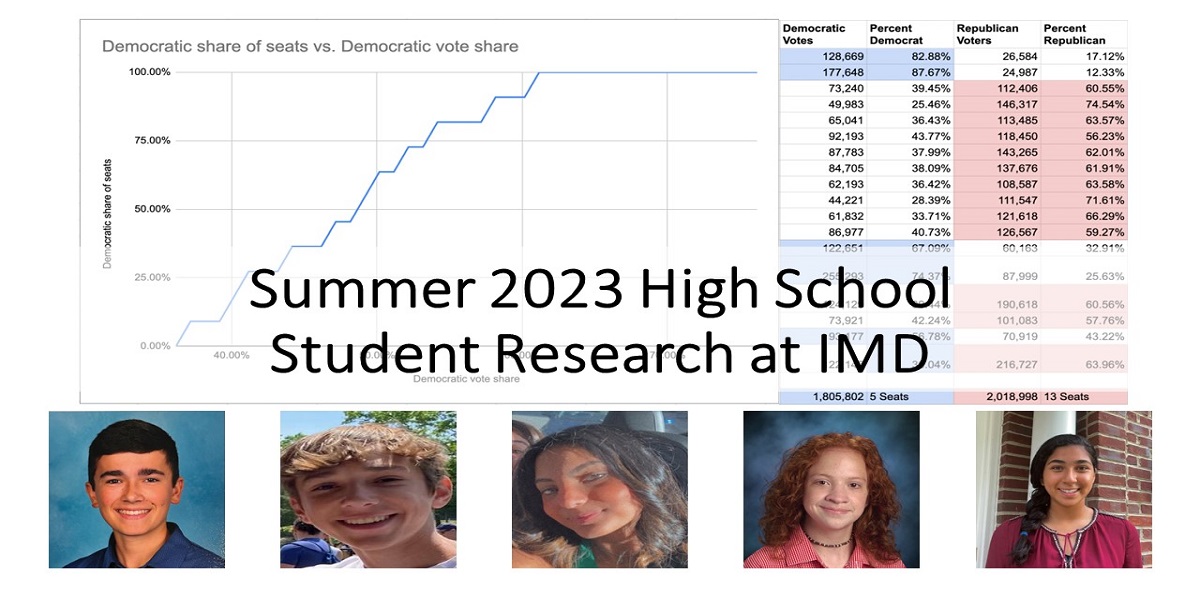Summer 2023 in Review: IMD High School Research Program
This summer, IMD welcomed high school students Aaron Wasielewski, Andrei Volić, Caroline Cordts, Emily Pallan, and Serena Pallan as researchers. Together, they examined the effects of court rulings on districting and competitiveness of state and congressional districts. They also studied how the geography of voting precincts and the location of polling places influences disenfranchisement and affects voting turnout.
Through their project, the IMD summer researchers used several measures of gerrymandering – efficiency gap, and partisan bias – to track the efficacy of court rulings mandating the redrawing of maps in several states. The goal was to calculate these measures for elections immediately before and after the maps were redrawn and see how the data supports the hypothesis that court-mandated redrawing produces more fair and less gerrymandered maps. The students analyzed congressional and state elections in Indiana, Michigan, Pennsylvania, Virginia, and West Virginia for their project.
Aaron specifically examined the League of Women Voters of Pennsylvania v. Commonwealth of Pennsylvania court case which was decided in 2018. He gathered evidence that demonstrates how court-mandated redrawing produces more fair and less gerrymandered maps. When reflecting on the experience, Aaron emphasized that it was “massively beneficial in improving my critical thinking and analytical skills.”
During his research into court rulings, Andrei discovered that Michigan established an independent districting commission in 2020. He looked at the 2018, 2020, and 2022 Michigan Congressional races, finding that there was “virtually no gerrymandering” after redistricting was determined by a nonpartisan committee. “The IMD program this summer absolutely lived up to my expectations,” Andrei stated. “I was able to apply mathematical concepts and formulas to election results, essentially quantifying politics.”
Emily analyzed Indiana congressional, State House, and State Senate election data in the 2020 and 2022 elections. Together with the student research team, she also experimented with Districtr to draw a district map for Iowa, attempting to minimize the population balance between the districts. “I can’t wait to dive deeper into these methods in college,” she said.
Serena’s focus was on Virginia’s state and congressional elections. She analyzed election results and practiced drawing districting maps from scratch. “I’ve found that this program has accurately taught me what it’s like to acquire, analyze and make sense of data in a way that could not be achieved in day-to-day school instruction,” Serena reflected. “I am happy that I was a part of this experience and I hope to continue exploring this field in the future.”
IMD is proud of this outstanding team of students, whose meaningful research casts light on gerrymandering, districting, and the impacts of court cases in various states. We are excited to see how these students continue to apply their knowledge of math and politics to advocate for fairer and more competitive voting districts!



